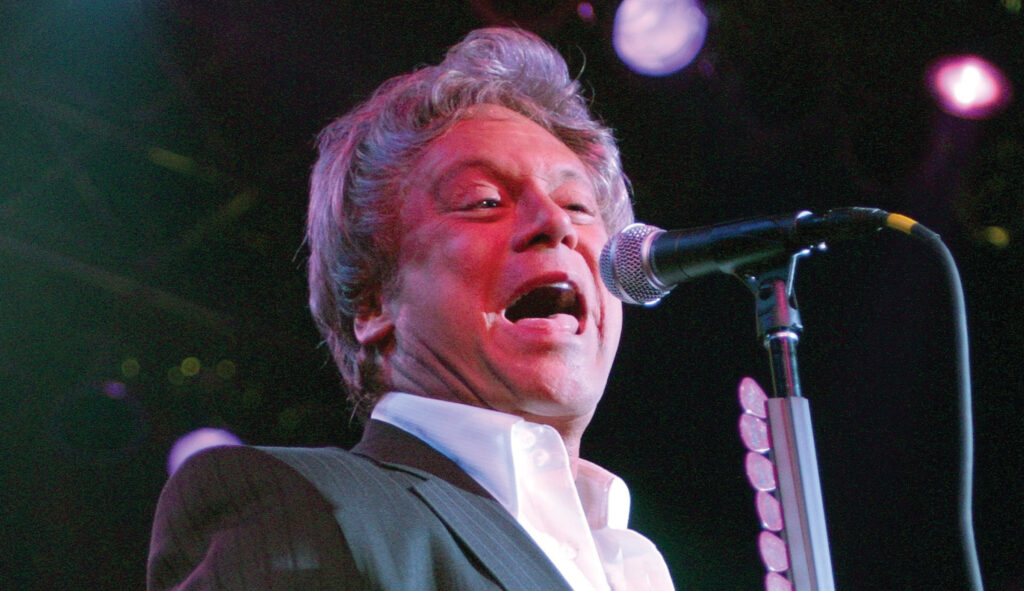You’re making a Valentine’s Day rom-com, and you’ve reached the moment in your movie when your love interests have their inevitable breakup-before-eventually-getting-back-together scenes. Yes, you’ll give your couple a happy ending, but you want to make sure that their despondency in the interregnum is believable. During the montage you’re planning on filming — you know, the one where you’re going to have your characters eating whole pints of ice cream alone on the couch at night while scrolling through old texts from their once-and-future boyfriend/girlfriend and crying — what song are you going to tell your movie’s musical director to play? “Why, ‘All by Myself,’ of course,” the musical director responds. “Did you even need to ask?”

Now you’re filming a commercial for a national restaurant chain. You only have a few seconds to make sure viewers associate the food on screen with cravings in their stomachs, so you want a song to play during these few moments that will allow them to make this connection for themselves. What song do you choose? Why, “Hungry Eyes,” of course, you tell yourself. Was there ever even a doubt?
The performer of these two songs, two of the most frequently played singles in modern media, was Eric Carmen, the celebrated singer-songwriter who died this week at the age of 74 after a lifetime of dedication to the craft that he loved. Carmen’s mother was a violinist in the Cleveland Orchestra whose induction of her son into the world of music at a young age was decisive not only for him but for the past 40-plus years of American pop culture. Growing up surrounded by classical music, Carmen thought that he would carry on in that path himself. But his exposure to the Beatles when he was a teenager would prove to be equally as pivotal as his earlier exposure to classical music. Prior to that, his aunt, who was also a member of the Cleveland Orchestra, had been teaching him the violin. But “after seeing the Beatles film A Hard Day’s Night,” he later recounted, “I dropped everything and immediately decided I wanted to do that!”
Carmen began teaching himself the guitar and set about charting a new direction, not only for his own musical career but for American rock ‘n’ roll as a whole — fitting, perhaps, for a native of the city where the Rock & Roll Hall of Fame would later have its home. Hearkening back to the more expressive style of songwriting pioneered by ’60s groups like the Beatles and the Beach Boys, Carmen synthesized ’60s rock’s inventiveness and elegance with the more dynamic power rock that was being introduced by bands like The Who and Led Zeppelin in the late ’60s and early ’70s.
The Raspberries, the rock band that Carmen formed in 1970 with Dave Smalley and Jim Bonfanti, achieved almost instant success. In 1972, their risque song “Go All the Way” reached No. 5 on the Billboard Hot 100. Soon thereafter, Carmen realized his adolescent dream when he found out that John Lennon was a fan of his band. He lived out yet another dream when he toured with Ringo Starr in the year 2000.
CLICK HERE TO READ MORE FROM THE WASHINGTON EXAMINER
The Raspberries were short-lived, disbanding in 1975, but Carmen’s career and influence were not. Feeling liberated from having to write music that worked for three different artists and now able to write for only himself, Carmen composed “All by Myself” shortly thereafter, which quickly shot all the way up to No. 2 on the Billboard Hot 100 and eventually hit No. 1 on both the U.S. Cash Box Top 100 and the U.S. Record World Singles. “All by Myself” showcased Carmen’s unique blending of soft rock and power rock, seasoned by his earlier training in classical music. The song’s melody was inspired by the adagio in Rachmaninoff’s Second Piano Concerto. “All by Myself” has had an entire life of its own, being used in countless movies and TV shows and having been covered by artists such as John Travolta and Celine Dion.
Perhaps because of its popular, multi-demographic appeal, Carmen’s music proved to be a natural fit for movies. “Hungry Eyes,” originally written in 1984, was popular at the time, reaching No. 4 on the Hot 100, but when it was used in the 1987 film Dirty Dancing, it took on a new (and still continuing) life of its own as well. Carmen’s songs also appeared in Almost Famous, Footloose, and Bridget Jones’s Diary, among other movies. For a man whose life had a movie-like quality to it, all we’re missing now is the Eric Carmen biopic.
Daniel Ross Goodman is a Washington Examiner contributing writer and a postdoctoral fellow at Harvard Divinity School. His latest book, Soloveitchik’s Children: Irving Greenberg, David Hartman, Jonathan Sacks, and the Future of Jewish Theology in America, was published this summer by the University of Alabama Press.
